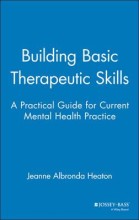Developing observational skill - observing verbal expression
9 important questions on Developing observational skill - observing verbal expression
What are characteristics of verbal expression?
What are verbal cues for education, developmental level and culture?
Which changes in speech does anxious or nervous behaviour (or other strong feelings) trigger?
- Higher grades + faster learning
- Never study anything twice
- 100% sure, 100% understanding
What does fluency on subject matter refer to?
-can result from avoidance to focus on uncomfortable feelings, then client shifts to a less emotional topic (i.e. avoiding discomfort)
When can laughter be used as a cover?
Wanneer lache mensen?
How can the therapist react to nervous or otherwise strange laughter?
What may be causes of silence while you expect the client to talk?
-she is overwhelmed with emotion
-she doesn't want to talk about what is on her mind
-she is scared of your reaction
-she is fearful of being overheard
-she want to tell something but then betrays someone else
-she can't find the right words
-she is trying to regain composure
What can a lack of silence (keeping talking) signal?
The question on the page originate from the summary of the following study material:
- A unique study and practice tool
- Never study anything twice again
- Get the grades you hope for
- 100% sure, 100% understanding































